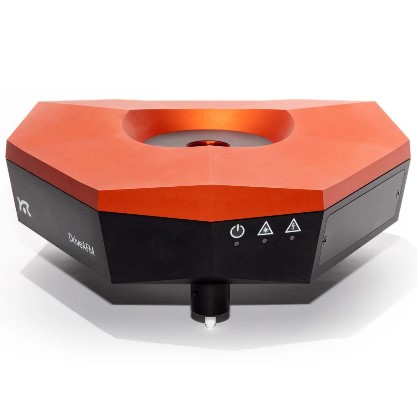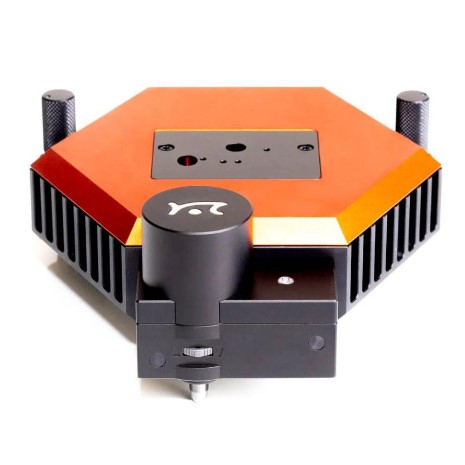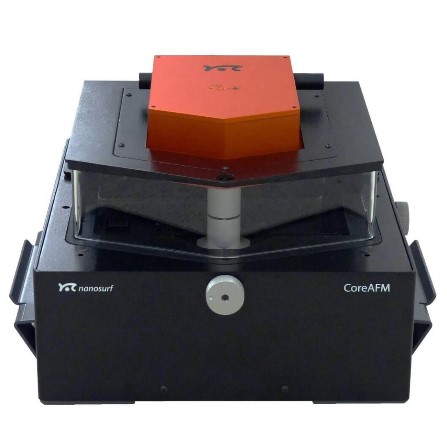DriveAFM

DriveAFM Research
Distributor & Service Provider In India
Inkarp Instruments, a trusted Nanosurf partner, offers the DriveAFM Research in India, a versatile and high-performance Atomic Force Microscope (AFM) for advanced research applications.
Performance without compromise
The DriveAFM is Nanosurf’s novel flagship AFM platform: a tip-scanning atomic force microscope (AFM) that combines, for the first time, several capabilities in one instrument to enable novel measurements in materials and life sciences. The DriveAFM overcomes drawbacks of other tip-scanning instruments and provides atomic resolution together with fast scanning, fast force spectroscopy, and large scan sizes up to 100 µm. Thanks to Nanosurf’s innovations in optical beam path engineering and scanner design, the Drive scan head features photothermal actuation and full motorization for superior research performance and is easy to use for researchers at all levels of experience.
- CleanDrive: stable excitation in air and liquid
- Ultra-low noise
- Direct drive: high-resolution imaging and large scan area
- Fully motorized system: full control via software
| Scan head | |
|---|---|
| Scan size | typ. typ. 100 µm x 100 µm x 20 µm min. 95 µm x 95 µm x 18 µm |
| Read-out light source | 840 nm low-coherence SLD |
| CleanDrive light source | 785 nm laser |
| Photodetector bandwidth | ≥8 MHz |
| Standard / maximum sample size | 100 mm / 150 mm |
| Z-height noise dynamic | <30 pm (RMS) |
| Z-height noise static | <30 pm (RMS) |
| DC detector noise* | <5 pm (RMS, 0.1 Hz – 10 kHz) |
| AC detector noise* | <25 fm/√(Hz) above 100 kHz |
| Approach | 10 mm motorized, parallel |
| (*) measured with a USC-F1.2-k7.3 cantilever | |
| CX Controller specifications | |
|---|---|
| High resolution outputs (DAC) | 12x 28 bit, 1 MHz/sampling; thereof 4x user DAC (optional) |
| Fast outputs (DAC) | 4x 16 bit, 100 MHz/sampling; thereof 1x user DAC (optional) |
| High resolution inputs (ADC) | 12x 20 bit, 1 MHz/sampling; thereof 4x user ADC (optional) |
| Fast inputs (ADC) | 3x 16 bit, 100 MHz/sampling; thereof 1x user ADC (optional) |
| Signal analyzers | 2 signal analyzer function blocks that can be configured as dual channel lock-in |
| FPGA module and embedded processor | System-on-chip module with low-latency FPGA signal processing at 100MHz and dual-core ARM processor, 2GB RAM, 1.5GHz clock |
| Scan control | 28-bit X/Y/Z-DAC |
| Detector inputs | Deflection/lateral signals each 20 bit |
| Digital sync, Spike-Guard | 2-bit line/frame sync out 5 V/TTL galvanically isolated, Spike-Guard input |
| Clock sync | 10MHz/3V clock input to synchronize data acquisition and processing |
| Communication to PC | Gigabit Ethernet, galvanically isolated |



